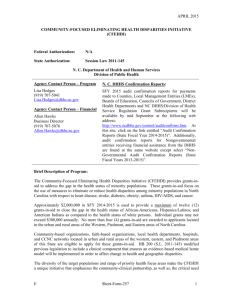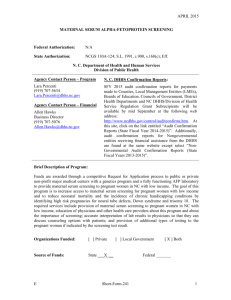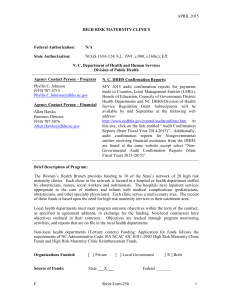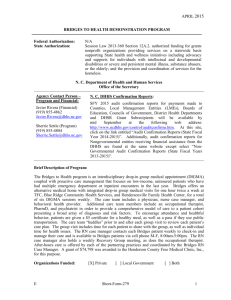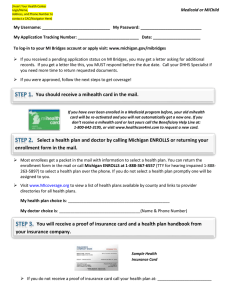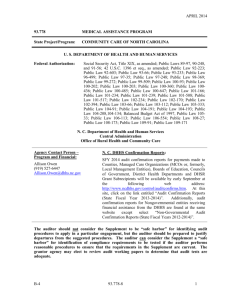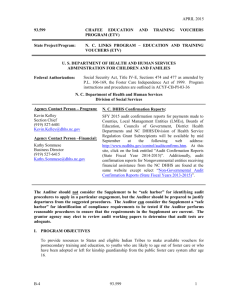NAME OF GRANT/PROGRAM/AWARD
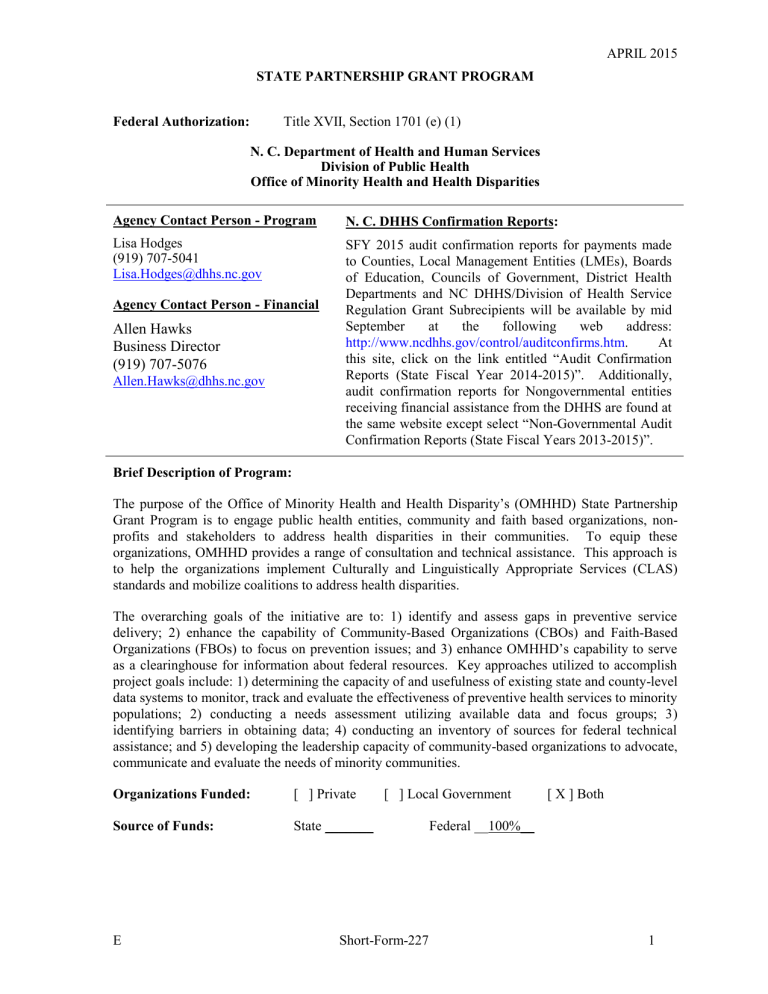
APRIL 2015
Federal Authorization:
STATE PARTNERSHIP GRANT PROGRAM
Title XVII, Section 1701 (e) (1)
N. C. Department of Health and Human Services
Division of Public Health
Office of Minority Health and Health Disparities
Agency Contact Person - Program
Lisa Hodges
(919) 707-5041
Lisa.Hodges@dhhs.nc.gov
Agency Contact Person - Financial
Allen Hawks
Business Director
(919) 707-5076
Allen.Hawks@dhhs.nc.gov
N. C. DHHS Confirmation Reports:
SFY 2015 audit confirmation reports for payments made to Counties, Local Management Entities (LMEs), Boards of Education, Councils of Government, District Health
Departments and NC DHHS/Division of Health Service
Regulation Grant Subrecipients will be available by mid
September at the following web address: http://www.ncdhhs.gov/control/auditconfirms.htm
. At this site, click on the link entitled “Audit Confirmation
Reports (State Fiscal Year 2014-2015)”. Additionally, audit confirmation reports for Nongovernmental entities receiving financial assistance from the DHHS are found at the same website except select “Non-Governmental Audit
Confirmation Reports (State Fiscal Years 2013-2015)”.
Brief Description of Program:
The purpose of the Office of Minority Health and Health Disparity’s (OMHHD) State Partnership
Grant Program is to engage public health entities, community and faith based organizations, nonprofits and stakeholders to address health disparities in their communities. To equip these organizations, OMHHD provides a range of consultation and technical assistance. This approach is to help the organizations implement Culturally and Linguistically Appropriate Services (CLAS) standards and mobilize coalitions to address health disparities.
The overarching goals of the initiative are to: 1) identify and assess gaps in preventive service delivery; 2) enhance the capability of Community-Based Organizations (CBOs) and Faith-Based
Organizations (FBOs) to focus on prevention issues; and 3) enhance OMHHD’s capability to serve as a clearinghouse for information about federal resources. Key approaches utilized to accomplish project goals include: 1) determining the capacity of and usefulness of existing state and county-level data systems to monitor, track and evaluate the effectiveness of preventive health services to minority populations; 2) conducting a needs assessment utilizing available data and focus groups; 3) identifying barriers in obtaining data; 4) conducting an inventory of sources for federal technical assistance; and 5) developing the leadership capacity of community-based organizations to advocate, communicate and evaluate the needs of minority communities.
Organizations Funded:
Source of Funds:
[ ] Private
State _______
[ ] Local Government [ X ] Both
Federal __100%_ _
E Short-Form-227 1
